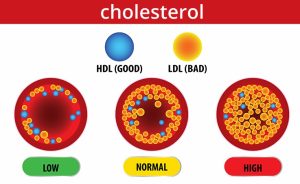In today’s fast-paced world, many people delay or skip routine health check-ups — often waiting until symptoms appear. But the truth is, early detection can save lives. Many life-threatening conditions, including dementia, cancer, heart disease, and diabetes, can be treated more effectively when caught in their earliest stages.
Regular screenings are not just a precaution — they are one of the most powerful tools in preventive healthcare.
The Power of Early Detection
When diseases are identified early, treatments are more effective, recovery rates are higher, and the risk of severe complications drops significantly. For example:
- Cancer: Many cancers, such as breast, cervical, colorectal, and prostate cancer, have high survival rates if diagnosed early.
- Dementia: While there is no cure, early detection allows for better management, lifestyle adjustments, and treatment plans that can slow progression.
- Heart Disease: Routine blood pressure, cholesterol, and heart health checks can catch issues before they lead to a heart attack or stroke.
Why People Avoid Screenings
Despite the benefits, many people avoid screenings due to:
- Fear of results
- Busy schedules
- Lack of awareness about available tests
- Misconceptions that screenings are only needed for older adults
Breaking these barriers is essential to building a healthier future.
Essential Screenings to Consider
Depending on your age, gender, and family history, your doctor may recommend:
- Blood pressure and cholesterol checks
- Cancer screenings (mammogram, colonoscopy, Pap smear, PSA test)
- Blood sugar tests for diabetes
- Cognitive assessments for dementia risk
- Vision and hearing tests
- Bone density scans for osteoporosis
The Role of Lifestyle and Prevention
While screenings are crucial, combining them with healthy habits can significantly reduce your risk:
- Eat a nutrient-rich diet with plenty of fruits, vegetables, and whole grains.
- Exercise regularly to maintain a healthy weight and boost immune health.
- Avoid smoking and excessive alcohol consumption.
- Manage stress through mindfulness, relaxation, or hobbies.
- Stay informed about your personal health risks based on family history.
Bottom Line
Serious illnesses like dementia and cancer can often be managed — and sometimes even prevented — through early detection and consistent screenings. Don’t wait for symptoms to appear. Make regular health checks part of your life, because prevention is always better than cure.



